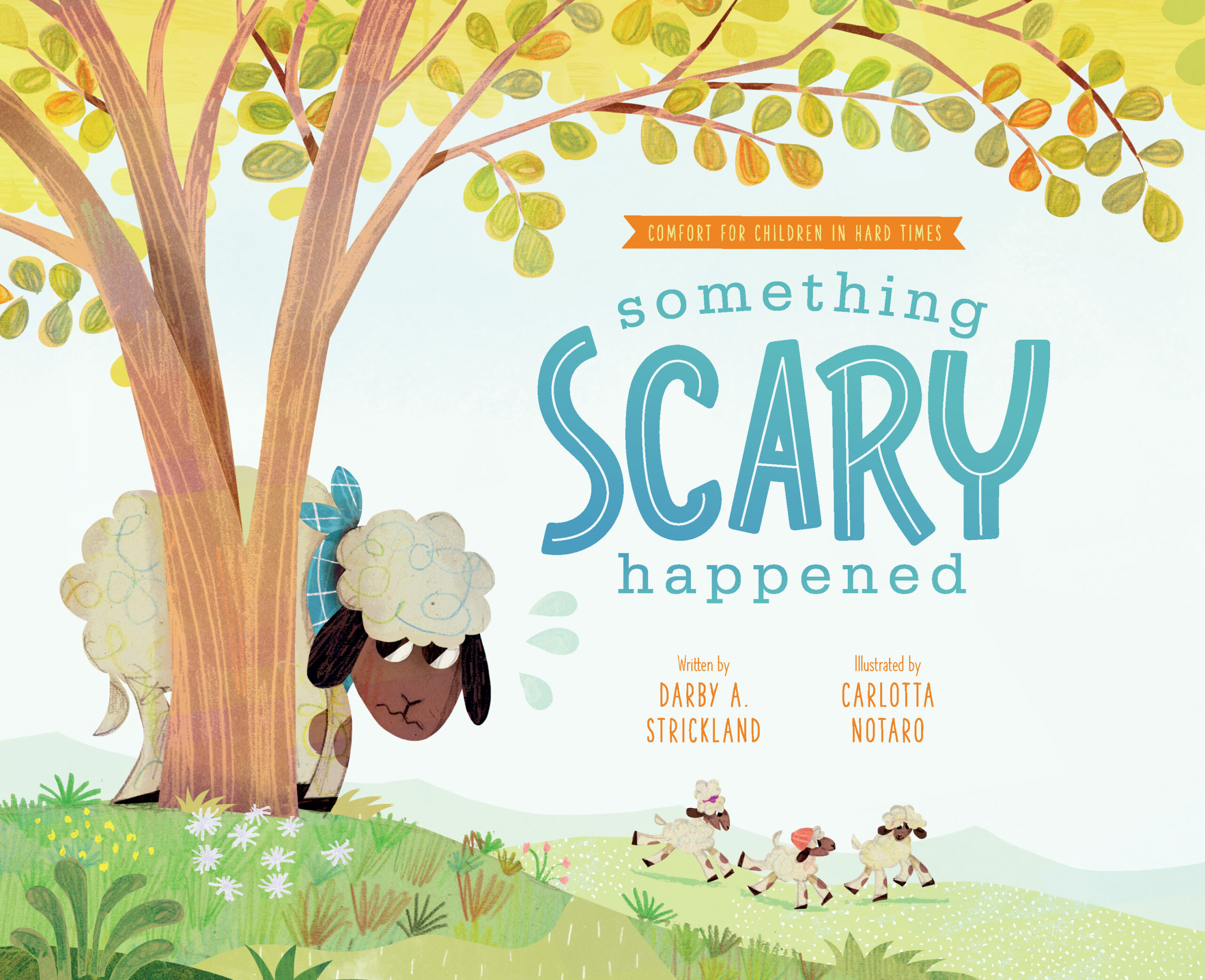Watching my children hurt is one of the hardest things for me as a parent. There are moments where I am completely powerless to take their pain away. I can still recount many of them. My son has an undiagnosed neuromuscular disease, which has meant many scary and painful medical tests. My daughter has a benign rapid heartbeat condition, which is frightening when it kicks in at 200 BPM. Her eyes light up with terror, and we move into action. Even long after these medical events have ended, my heart remains heavy for my children as I have noticed the lingering impacts of fear in their lives. It grieves me to see them struggling with remaining anxiety.
You may be like me and wish you could protect your children from suffering. But sooner or later (usually sooner), we learn how impossible that is. Tragedy touches all our lives. Whether it is an event we experience firsthand, witnessing our friends and family suffering, or our exposure to war and disaster through media, suffering is a regular feature of our reality and theirs.
I have spoken with many parents who think they can protect their children by not talking about or reminding them of scary things. They fear that bringing up difficult things will hurt their child. Or they naively believe that if their child is not talking about something, they are not thinking about it. But this leaves children alone to make sense of suffering and without any comfort for their fears. And it fails to address the reality that children absorb information by overhearing adult conversations and through media consumption.
Our children’s hearts are active. As they engage the world around them, they will seek to make sense of it. When children do not understand something, they often try to fill in the blanks or seek answers from their peers. As adults, we struggle to understand what the Lord is up to amid suffering. How much more will our children? Our children need guidance, and God calls us to step in be their guides.
Your Children’s Chief Interpreter
God tells us to be the chief interpreters of the world around our children (Deuteronomy 6:6–7). So even when we do not have all the answers regarding suffering and tragedy, we must speak to our children about what we know about the Lord. We can share God’s love for them, his gift of comfort, and his promise to help in times of trouble.
Just as Jesus invites us to talk to our Father about our worries and anxieties (Matthew 6:9–13; Philippians 4:6), we should welcome the same conversations from our children. Scripture does not shy away from the hard; it consistently encourages us to lament, names evil, and is filled with stories about relational pain and trauma. Scripture does tell tragic stories, but it does so in a way that features God’s provision for his suffering people.
This realization has changed how I approach suffering with my children. I have learned not to shy away from it. God wants me to shepherd my children, just as he shepherds us through the challenging moments in life. So, we talk about the sick people at church, the wars they hear about on digital media, the tragedies that impact their close friends, and their personal hardships. We do curate the level of detail and have age-appropriate conversations. But we talk about suffering the way Scripture does, with God in view.
As Christians, we believe God is with us, and his presence is the source of our comfort. In the book of Isaiah, there is a verse that can help us when we feel scared or overwhelmed by suffering. It says, “Fear not, for I am with you; be not dismayed, for I am your God; I will strengthen you, I will help you, I will uphold you with my righteous right hand.” (Isaiah 41:10). I want to share with you five simple truths from this verse that you first can receive from the Lord, then use as a framework with your children, so they find comfort in times of sorrow.
- Fear not; I am with you. God tells you not to worry because he is always right there with you, like a best friend. You are never alone because he is by your side.
- I am your God. God is YOUR God. That means he loves you and takes care of you.
- I will strengthen you. When you feel weak or unsure, God promises to make you strong.
- I will help you. God is ready to help you with anything you need no matter how big or how small.
- I will uphold you. God will support you—just like you hold your children’s hand, so they won’t fall. God is holding you.
When we talk about suffering, we want to share with our children who God is and how he provides comfort and help. As Christian parents, one of our greatest privileges is nurturing our children’s faith and teaching them to turn to God in times of need. When our little ones are scared, anxious, or worried, remembering with them how God loves us will encourage them to ask him for help and experience his comforting, never-failing love.






